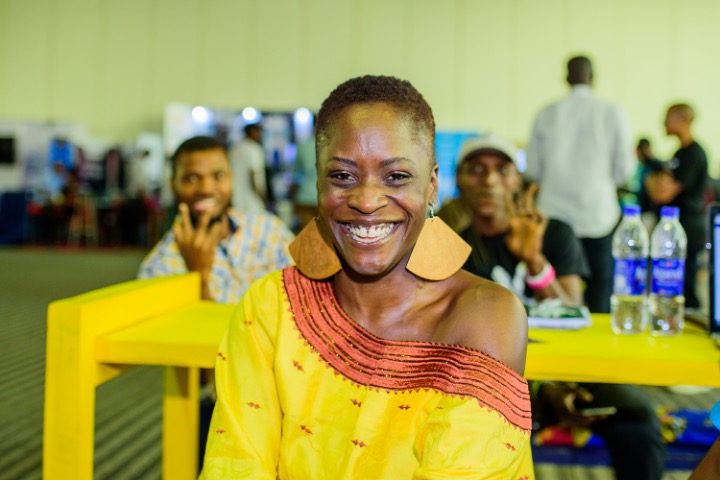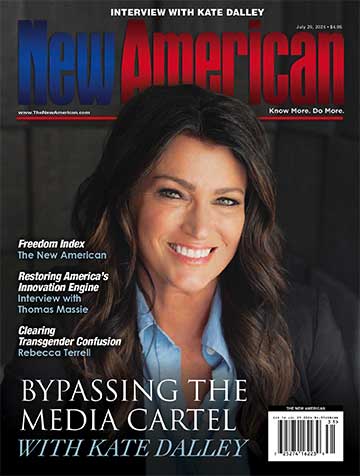
The question is: What’s the “more”?
Black author and intellectual Booker T. Washington once famously said that there “is another class of coloured people,” whose members “do not want the Negro to lose his grievances, because they do not want to lose their jobs.”
If anyone currently fits this bill, it’s one Yaba Blay, a self-professed black “thought leader” who states in her bio that she was named one of “Essence Magazine’s ‘Woke 100’” (yes, they meant that as a compliment). After all, most racial hustlers at least maintain the pretense that if the U.S. would merely fork over billions in reparations to its black citizens, the “healing” could begin and all and sundry could hope to come together and sing Kumbaya.
But not Blay, not today — and not ever. White people, you “can not pay your way out of this,” she warns. “There are not enough reparations in the world.”
Blay, who made her comments while speaking to soccer player and coach Abby Wambach, co-host of the “We Can Do Hard Things” podcast, is surely among the wokest of the Woke 100. She’s not modest, either, stating in her bio that she’s “respected as one of the foremost thought leaders” and is “a globally sought-after speaker.”
The last claim is questionable, though. Blay does have a “PhD in African American Studies” and a “Graduate Certificate in Women’s Studies,” and says she has “expertise” in, quote, “Colorism”; “Beauty politics, particularly in relation to Black women and girls (skin color/hair politics)”; “Black aesthetic practices”; “Black racial/cultural identity”; and “Equity & Inclusion.” Yet one could wonder:
How marketable are these “skills” in China?
They certainly do bring riches in the late American Republic, however, where racialism is big business. As for Blay’s latest woke pronouncement, OutKick has the story:
Discussions of reparations are hardly new in America. It seems to bubble up once every few years, and the argument made by people in favor has always been varying degrees that paying black people reparations washes clean the sins of slavery.
Blay, whose entire career seems to be made of talking about racism, doesn’t think that’s the case at all. She wants money and still wants to call people racist. What a lovely person. It’s not a surprising take from someone who appeared in a video with Jemele Hill titled, “Who Determines Who is Black? Dr. Yaba Blay on the One-Drop Rule.”
As for the Wambach interview, the host nodded along obediently as Blay proclaimed, “White people, I need you to know your money will not assuage you from your guilt. You can not pay your way out of this. There are not enough reparations in the world that you can pay us.”
She still wants you to try, though. “‘So you think because you write me a check or slide me something in Venmo that you’re absolved and you can tell somebody, “Well, I gave Dr. Blay $100. I’m not racist,”’” she continued. “‘Dr. Blay is going to spend your $100 and still tell you that you’re racist. Thank you,’ Blay, who seems like she’d be just so much fun at a party, said during the conversation,” OutKick also relates.
For the record, “assuage you from your guilt” is poor English usage; Blay meant, “absolve you from your guilt.” But, whatever. Schooling often interferes with education today, and Blay at least gets an A for honesty (though not the intellectual variety). Honesty is also reflected in her name: While “Yaba Blay” sounds like a nom de guerre, she is actually a first-generation American born of Ghanaian parents. In other words, our education system ensured that she became “Amerikanized.”
Below is a video clip of Blay’s comments to Wambach:
And here is a 2022 Facebook video of Blay complaining about white women’s tears.
As for Blay’s Ghanaian roots, commentator Olivia Murray points out an irony. “Ghana, once a British colony known as the Gold Coast, previously served as a major supply hub for the Trans-Atlantic slave trade, and was home to countless African, black, slave traders,” she notes. “I’d be willing to bet that Blay [as with Kamala Harris] has some slave-trade blood in her, somewhere along the line.”
Murray also echoes my opening question and wonders: If reparations aren’t enough, what do the world’s Blays really want?
“To be honest, my mind goes to South Africa, and the ‘white’ experience of not being able to ‘pay’ your way out of the problem,” writes Murray. “It wasn’t enough for the whites to fund the government to make direct reparations payments to black residents, and it wasn’t enough to seize the land of the white farmers and redistribute it to the black non-farmers.”
“You know what has seemed to be ‘enough’ though?” Murray concludes? “Rape, torture, and bloodshed.”
Actually, however, even that’s not enough. Someone filled with hatred ever seeks another pound of flesh from his wrath’s object, instinctively trying in vain to achieve a satisfaction that vengeance never brings. The only solution, whether the hated object’s transgressions are real or imaginary, is forgiveness. For anger is like darkness: The more there is, the less you can see. Forgive, and you begin perceiving people as they really are.
What’s sad is that Blay (and many others) was so indoctrinated by dark forces that she now wallows in self-toxifying hate. It’s fair to conclude that she’d be better off, and happier, if her parents had stayed in Ghana.



